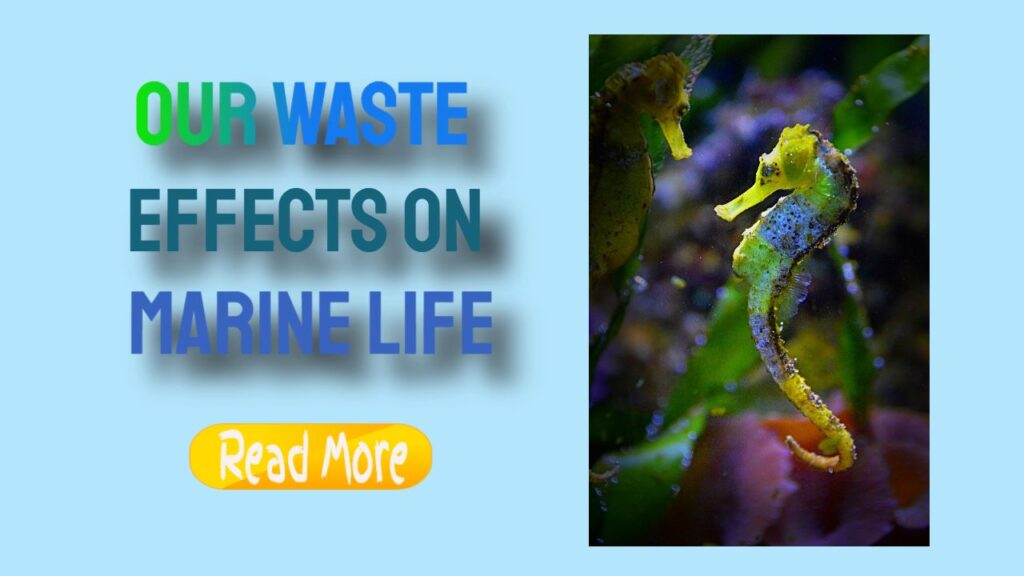Delve Into Essential Topics Surrounding Marine Pollution
- Unraveling the Environmental Consequences of Oil Spills
- Investigating the Toxic Effects of Oil Spills on Human Health
- Understanding Ocean and Coastal Acidification’s Impact on Ecosystems
- Recognizing Critical Threats Facing Marine Environments
- Assessing the Societal Consequences of Oil Spills
- Examining the Economic Repercussions of Oil Spills
- Identifying Major Impact Factors of Oil Spills on Marine Ecosystems
- Analyzing the Effects of Oil Spills on Marine Wildlife
Unraveling the Environmental Consequences of Oil Spills
The challenge of marine pollution encompasses a variety of factors, including chemical, industrial, and agricultural contaminants that have surged in occurrence over the past few decades. Among these, incidents such as oil spills, untreated sewage discharges, and the introduction of invasive species have raised alarms among scientists and environmental advocates alike. The escalating concern centers on the grave consequences these pollutants inflict, not only jeopardizing our ecosystems but also posing significant risks to human health. Efforts are underway to continuously monitor the levels of chemical and plastic pollution in our oceans, employing diverse methodologies to assess pollutant discharges stemming from land-based activities, particularly oil spills. Initiatives like Horizon 2020 are dedicated to advancing a healthier Mediterranean by identifying pollution sources and endorsing sustainable practices crucial for marine conservation.
Research focused on marine pollution predominantly investigates its ramifications on biodiversity, potential risks to human health, and the overall health of marine experiences. This examination will highlight the intricate relationships among these categories, underscoring their importance. While certain seabird populations are adversely affected by oil exposure, overall marine species stocks do not show significant declines attributed solely to pollution. Instead, elements such as reproductive success and population dynamics are often more heavily influenced by external factors. Interestingly, regions like the North Sea have seen increased pollution yet report growth in fish populations like cod and haddock over recent decades.
Furthermore, deep-sea mining activities contribute to the rising tide of marine pollution, as operations extract valuable minerals including silver, gold, and copper. These mining practices generate sulphide deposits at remarkable depths, which may release harmful substances that worsen ocean toxicity. Although scientific inquiry continues to explore the environmental ramifications of deep-sea mining, it is evident that these operations pose significant threats to marine ecosystems, causing irreparable damage and increasing the risk of oil spills and contamination.
Investigating the Toxic Effects of Oil Spills on Human Health
While oil spills are significant contributors to marine pollution, they represent just one facet of a broader issue. Other critical sources of ocean pollution include discharges and runoff from urban and agricultural landscapes. Each year, millions of pounds of untreated waste, encompassing sewage and hazardous materials, are released into rivers, ultimately finding their way into the ocean. Industrial processes coupled with agricultural runoff further intensify this dilemma, introducing harmful chemicals and pollutants into our waterways. The cumulative impact of these pollutants poses serious threats not only to marine ecosystems but also to human health, as exposure to toxic substances can lead to various health issues.
Ship-based pollution remains one of the leading sources of maritime contamination, particularly through incidents involving oil spills. The toxic nature of crude oil, which can persist in ocean waters for years, poses significant risks to marine organisms, potentially leading to suffocation when they become trapped in oil. The complex nature of oil spill clean-up efforts renders recovery of affected marine environments particularly challenging. The extent of damage inflicted by oil spills on coastal ecosystems is influenced by a multitude of factors, including the type of oil involved, its viscosity, and the efficiency of the clean-up efforts employed. For example, lighter oils may impact marsh vegetation in ways that differ from heavier crude oils, with each type presenting unique challenges for recovery efforts. Researchers are actively exploring the ecotoxicology of marine pollutants to gain a deeper understanding of their effects on both human and environmental health.
Ultimate Secrets To Saltwater Fish And Invertebrates
Understanding Ocean and Coastal Acidification’s Impact on Ecosystems
Consider the vast diversity of life thriving within our oceans. The rising levels of acidity in marine environments can profoundly disrupt the dynamics of various plant and animal species, often yielding unpredictable consequences. While certain organisms, such as seagrasses, may flourish in environments with elevated levels of dissolved carbon dioxide, others, like oysters, may face survival challenges as their larvae struggle to thrive in increasingly acidic conditions. As a result, ocean and coastal acidification is poised to induce significant shifts across entire ecosystems, affecting species abundance, interactions, and overall biodiversity.
About 80% of marine pollution is believed to stem from land-based activities, primarily due to the mounting pressures exerted by growing coastal populations. Nutrient pollution, mainly originating from agricultural runoff and sewage, inundates marine environments with excessive nitrogen and phosphorus, leading to harmful algal blooms. The decomposition of these blooms can deplete oxygen levels, creating hypoxic zones where marine life cannot endure. As the ocean, which comprises 71% of our planet, continues to absorb greenhouse gases and experiences rising temperatures, significant disruptions to the delicate balance of marine and coastal ecosystems are inevitable. Additionally, melting ice caps and altered ocean currents further exacerbate these ongoing environmental transformations.
Plastic pollution has emerged as a pressing concern in coastal and marine ecosystems worldwide. The relentless influx of plastic waste disrupts the structural integrity and functionality of these ecosystems, posing both direct and indirect threats to marine life. Sources of plastic pollution are diverse, stemming from both land-based and ocean-based activities. They manifest in various forms, including metaplastic, macroplastics, mesoplastics, and microplastics. Understanding the ramifications of plastic pollution is vital for devising effective strategies aimed at mitigating its adverse effects on marine environments.
Recognizing Critical Threats Facing Marine Environments
Antimicrobial resistance (AMR) has likely existed within marine microbial communities for eons; however, its prevalence has surged in recent years, especially in coastal waters. This uptick is thought to correlate with the increased introduction of pollutants and pathogens from land-based sources into marine environments. The repercussions of plastic litter on marine ecosystems have been extensively documented, revealing that numerous marine species face significant threats from plastic waste, jeopardizing their survival, particularly as many species are already vulnerable due to various anthropogenic pressures.
Marine animals frequently experience severe health outcomes and population declines due to entanglement in and ingestion of plastic debris. Lesser-known threats include the indirect repercussions of plastic waste on invasive species and the potential for harmful chemicals, such as polychlorinated biphenyls, to infiltrate the food chain. The socio-economic ramifications of marine litter are complex and interconnected, posing significant challenges for management and mitigation strategies. For instance, research on ghost fishing uncovers the economic losses associated with lost fishing gear, highlighting the broader implications of marine pollution on local livelihoods and coastal economies.
Assessing the Societal Consequences of Oil Spills
The escalating pollution of our oceans, predominantly due to human activities, significantly undermines the sustainability of marine ecosystems, yielding far-reaching societal implications. Advanced monitoring technologies, including airborne and spaceborne sensors, are being harnessed to provide comprehensive insights into major marine pollutants, such as oil spills, chemical discharges, and algal blooms. However, the complexities involved in evaluating these pollutants arise from their dynamic nature and the limitations of existing data concerning their specific characteristics and impacts, especially in optically shallow waters.
Noteworthy oil spill incidents, such as the Exxon Valdez and Deepwater Horizon disasters, have left indelible marks on marine environments and coastal communities. The Torrey Canyon spill in 1967 was one of the first significant oil disasters, releasing an estimated 25-36 million gallons of crude oil off the coast of Cornwall, England, and severely affecting coastlines in both the UK and France. The Deepwater Horizon spill, which originated from the seabed, had disastrous consequences for the Gulf Coast’s ecosystem, with repercussions cascading through marine life at all levels. In marine oil spills, fish and other marine organisms are often among the first to suffer, facing exposure to toxic oil components that can lead to long-term health issues and reproductive challenges.
Examining the Economic Repercussions of Oil Spills
Estuaries, often situated near petrochemical industries, exhibit heightened susceptibility to oil exposure due to transportation activities via ships and pipelines. Oil spills can inflict severe damage to vital intertidal habitats, including salt marshes and mangroves, leading to enduring ecological effects. The entanglement of marine animals in debris and their accidental ingestion of hazardous materials further exacerbates the risks associated with oil spills, impacting species such as seabirds, turtles, and marine mammals.
Oil plays a pivotal role in the modern economy, serving not only as an affordable energy source but also as a fundamental raw material for plastics. The impacts of oil and gas exploration and production are multifaceted, affecting ecosystems at every stage, from exploration through extraction to eventual combustion. In the North Sea, it is estimated that offshore activities contribute to 29% of the total oil input into marine environments, underscoring the ongoing risks tied to oil production and its long-term implications for both marine life and economic stability.
Identifying Major Impact Factors of Oil Spills on Marine Ecosystems
Despite the progress made in environmental regulations, oil spills continue to pose a considerable threat to marine ecosystems. While most oil spills are relatively small, they collectively account for a significant volume of oil entering marine environments, with over 5.65 million tonnes released due to tanker spills from 1970 to 2009. The environmental hazards linked to offshore oil production are profound, with massive spills capable of causing catastrophic effects on marine wildlife and coastal communities.
The Deepwater Horizon blowout in 2010 serves as a stark reminder of the potential devastation stemming from offshore drilling accidents. While natural disturbances typically facilitate ecosystem recovery, oil spills introduce persistent contaminants that can disrupt marine life for generations. Larger marine mammals and seabirds are particularly susceptible to both the immediate and long-lasting health repercussions of oil exposure, which can manifest as physiological changes, immune system issues, and reproductive failures.
Numerous coastal and marine ecosystems are naturally equipped to withstand disturbances, which create opportunities for new organisms to thrive. However, oil spills disrupt these natural recovery processes, introducing a level of chaos that hinders ecosystem resilience. Understanding and supporting the natural restoration mechanisms of affected ecosystems is essential for mitigating the long-term consequences of oil spills and fostering resilient marine environments.
Analyzing the Effects of Oil Spills on Marine Wildlife
Oil and gas exploration activities present numerous challenges to marine ecosystems, primarily through oil spills and associated noise pollution. Each year, thousands of oil spills occur in the United States alone, leading to extensive damage to marine habitats and wildlife. The consequences of oil spills can endure for decades, with cleanup efforts often removing only a fraction of the spilled oil, while sometimes introducing additional harmful chemicals that complicate the situation. Marine mammals, such as dolphins and whales, face heightened health risks when exposed to oil and toxic substances resulting from drilling operations.
The issue of marine debris, commonly termed “plastic trash,” is also of significant concern. Millions of Americans partake in coastal activities, often unaware of how their daily actions contribute to marine pollution. Marine litter poses threats to the ecological integrity of coral reefs and other critical habitats, leading to decreased biodiversity and disrupting essential ecological functions. All species of sea turtles and over half of known marine mammal species are adversely affected by marine litter, which can result in entanglement, ingestion, and potential toxicity from leaching chemicals originating from plastics.
The Ocean Conservancy estimates that plastic pollution impacts over 690 species of marine life, highlighting the urgent need for innovative solutions. Some businesses are actively exploring alternatives to conventional plastic products, such as edible six-pack rings crafted from leftover brewing materials. Despite widespread acknowledgment of the issue, the lack of comprehensive scientific data on marine plastic pollution underscores the necessity for ongoing research and public awareness initiatives to address this pressing challenge.
Coastal regions are increasingly vulnerable to human activities, with marine pollution and climate change emerging as significant challenges confronting these environments. Gaining insight into the cumulative effects of these pressures is crucial for effective coastal zone management and for developing proactive strategies aimed at mitigating environmental hazards. Ultimately, the responsibility for preserving our oceans rests with each individual, ensuring they remain healthy and vibrant for future generations.
The Article Impact of Waste on Marine Life Was Found On https://limitsofstrategy.com


